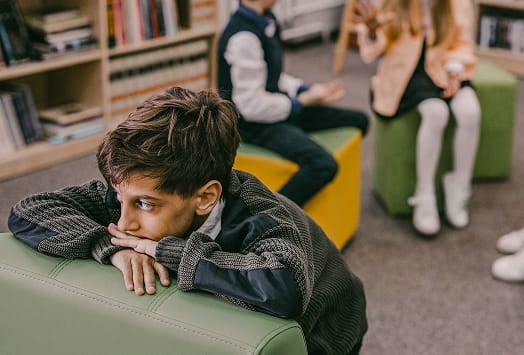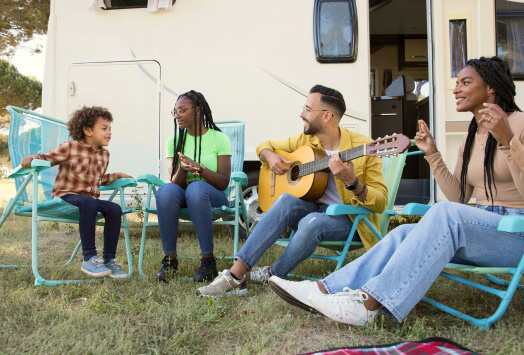In the spring, many parents start thinking about summer plans for their child. There are many different summer camp types and subjects that they cover, so odds are, you can find something that appeals to your child’s interests. Whether you choose a full day, half day, or online day camp or a sleepaway camp, there are many benefits of summer camp for your child. Children gain more independence and self-sufficiency, develop life skills, connect more strongly with nature, get a break from screen time, and, of course, make new friends.
As you start to think about getting ready for summer camp with your child, it is important to think about how to set them up for success. Besides packing the right clothes and including a lot of bug spray, how can you help your child make friends and have the best time while learning new things and enjoying the outdoors?
While building friendships at camp can happen for some children organically during the many exciting, structured activities, as well as in open play and down time, that is not the case for all children. If you anticipate that this may be hard for your child, there are some things you can do to help them.
How to help your child make friends at camp
Send them with a familiar face
If your child is attending camp for the first time or switching to a new program, consider one where your child may already have some connection like a friend, neighbor, cousin, or classmate. Talk to your child’s friends and neighbors to see what camps they are considering for the summer. A familiar face is a nice thing, especially for younger children or children on the shier side.
Model positive social behavior at home
If you know your child has some difficulties when it comes to positive interactions with peers, take the time to show them positive ways to behave with new friends. You can also use play to target particular skills that seem to be trouble spots for your child.
For example you can:
- Play games that focus on listening and then ask follow up questions.
- Practice using self-talk while observing what someone else is doing (“Oh, I’m noticing how you are using the stencils differently than I am”).
- Practice incorporating the ideas of a play partner (“Let’s mix our ideas together, we can play animals that go to the hospital”).
- Encourage sharing materials.
You can model these skills for your child in two ways:
- Play with your child as if you are another child their age. In other words, don’t give in and do whatever your child wants. Instead, behave as another child would: go into the session with a separate play agenda, challenge them, and then encourage them to use strategies that include collaboration and problem solving.
- Let them overhear you utilizing this positive social behavior with your own friends or partner. Children are watching and learning from their parents all the time.

Choose the right type of camp for your child
This seems like a give-in, but one of the best ways to help your child make friends at camp is to pick the right camp for them. You want a camp that is a good fit for your child’s strengths and interests. If your child doesn’t like soccer, then it will be harder for them to make friends at a soccer camp where, likely, all of the other children like soccer.
Conversely, if your child loves theater and crafts, sending them to an art camp or a camp that has lots of artistic options, then at least you know there will be like-minded children there. This will make social connections occur more easily and organically.
Observe your child in a natural social setting and see how they do.
If you see that your child is successful on the playground and readily connects with peers (in an age-expected way), then they likely won’t need much help making friends at camp. If they are consistently having a hard time playing with and alongside other children, think about why that may be.
If you are not sure why that would be the case, talk to their teacher at school to gain insights and suggestions. If you have felt for a while that your child is struggling socially, consider talking to your school’s psychologist or social worker, a play therapist, or a special educator for insights or referrals.
How to support your child during camp
You can still help your child make friends at camp during the summer. If you hear from your child that they are struggling socially, make time to meet with the camp director and head counselor of your child’s group. You can do this over Zoom or in person before camp opens in the morning or after the children have been picked up.
When speaking with your child’s counselor
Ask what they observe and what they are able to do to help your child. Then, you can share some of what you do on playdates or what teachers do during the school year that is helpful. Follow up a week or so later with a quick email or a morning check-in to see how it’s going.
Ultimately, we can’t make friends for our children, but we can support the development of their social skills as well as put them in a program that will suit them so that they have fun and enjoy camp.

If you are looking for online and in-person camps and activities for your child this summer, Sawyer makes summer planning simple! You can research camps, read reviews, and book directly on Sawyer. Whether it is sports, art, STEM, music, theater, or something in between, our educators have you covered!
















